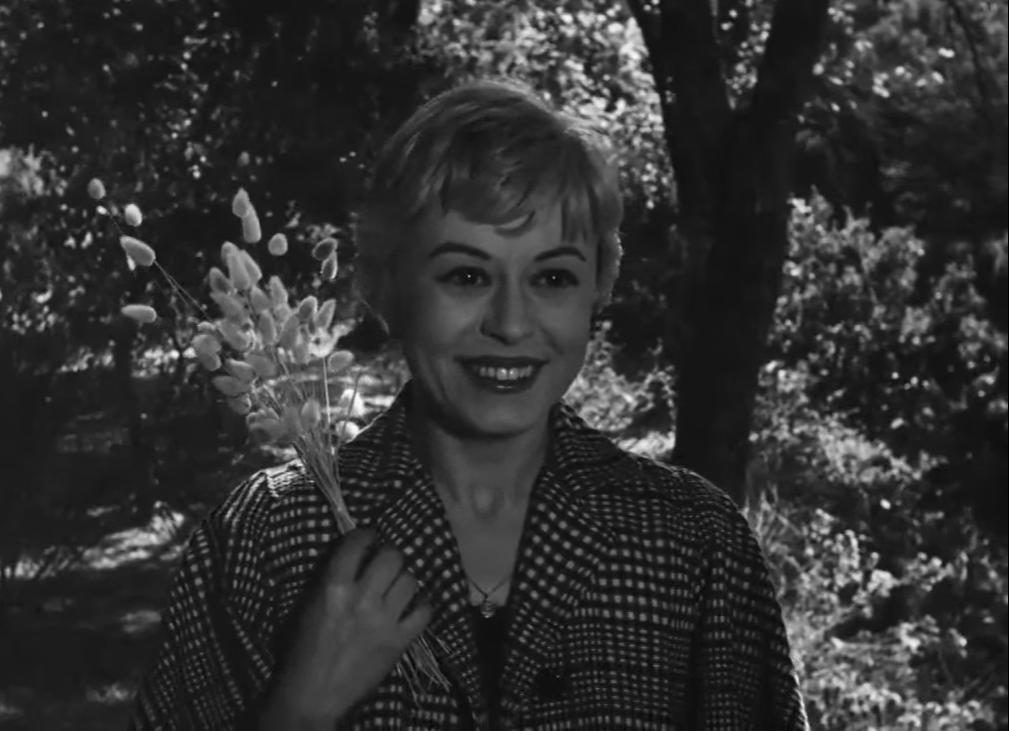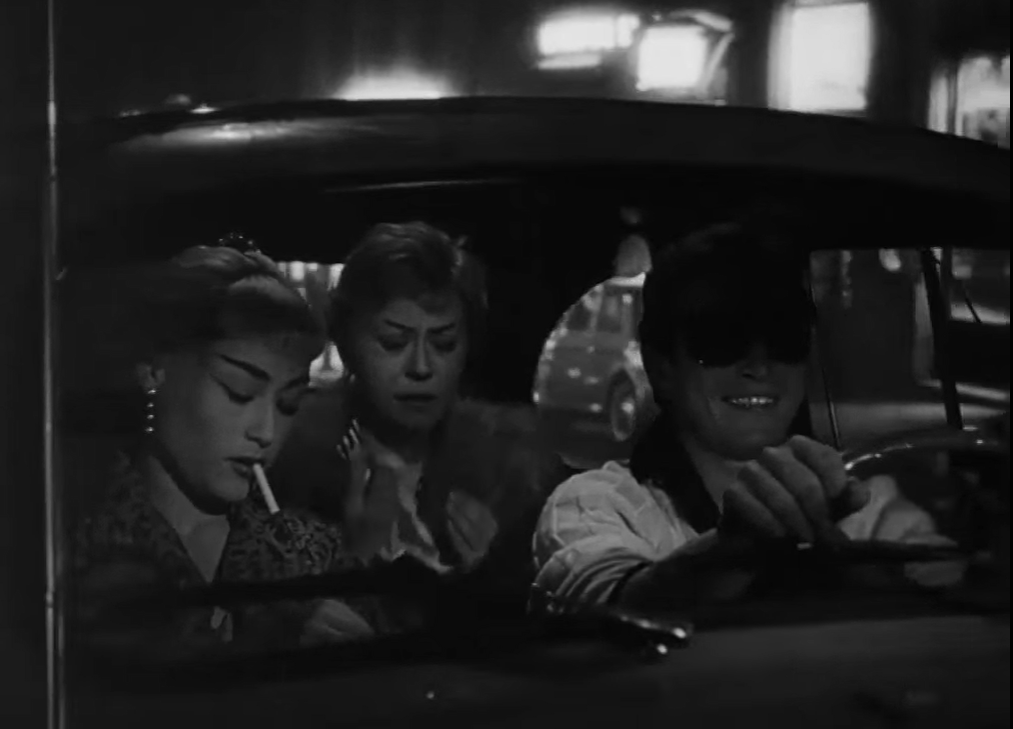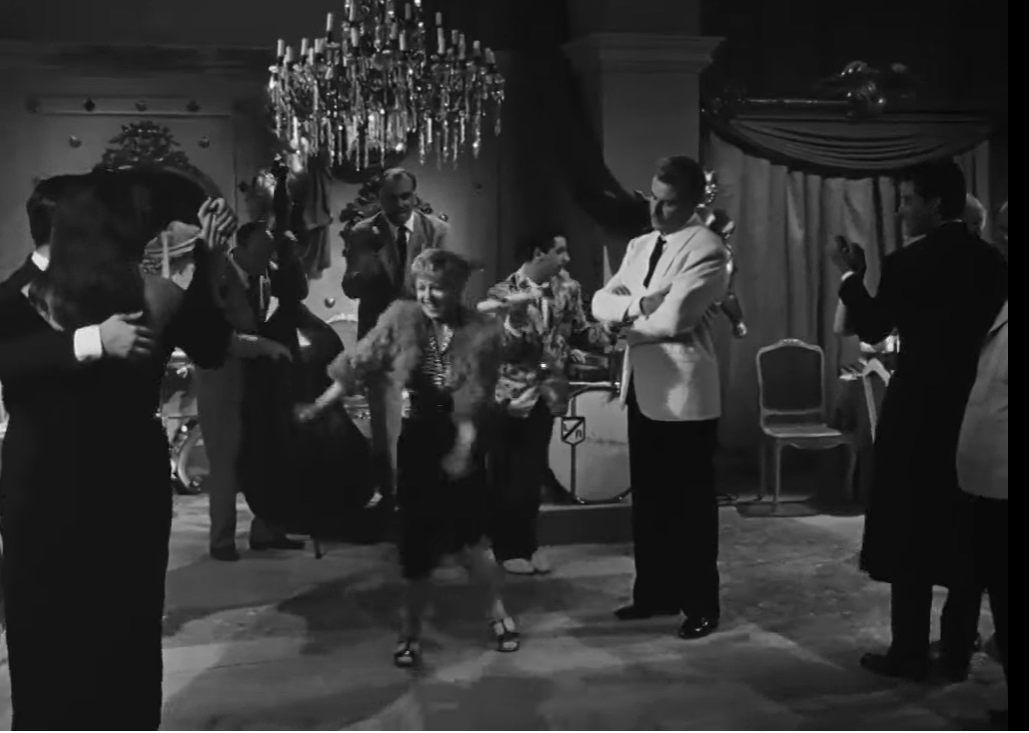Nights of Cabiria (1957)
“Listen — I’m fine the way I am. I got everything.”
|
Synopsis: |
|
Genres, Themes, Actors, and Directors:
Response to Peary’s Review: I’m not sure I fully agree with the rest of Peary’s assessment — particularly his remark that Cabiria “doesn’t wise up and remains completely trusting of men.” Even as Cabiria seems to soften in later portions of the film (her eyebrows literally shift from angled to curved), it’s not men she begins to trust, but rather her ability to make the best of life no matter what is thrown at her. She fights off jealous or combative women, and while men continue to attempt to take advantage of her, she is always on the ready to defy and deny their assertions that she needs them in order to thrive. For instance, she rejects an offer by a smug pimp (Ennio Girolami) to come under his protection: … and enjoys dancing in her own inimitable style when taken to a nightclub by Nazzari, caring not a whit that he doesn’t join in. While Cabiria is temporarily taken in by a “wise” magician who gets her to literally let her guard down: … and she is slowly flattered by the gentle and insistent attention Périer pays to her: … she never loses her sense of self-worth or dignity for more than brief moments at a time. Cabiria will get up again and again, and keep joining in the festival of life. Notable Performances, Qualities, and Moments: Must See? Categories
(Listed in 1001 Movies You Must See Before You Die) Links: |









One thought on “Nights of Cabiria (1957)”
(Rewatch 5/24/21.) Must-see, as one of Fellini’s best films and for Masina’s performance. As posted in ‘The 40s-’50s in Film’ (fb):
“I’m such a moron.”
‘Nights of Cabiria’ (1957): [I would say ‘spoiler ahead’ but is anyone really concerned about a spoiler when it comes to a film that’s over 60 years old?]
I wouldn’t say I’m a major fan of Fellini films – there are some I rather like. This one may be my favorite. I think it actually gets better with a second viewing. I hadn’t seen it in quite a long time – and I was rather moved through this revisit.
Still… I couldn’t help but compare the character of Oscar in Fellini’s version to the way that the character is presented in the musical ‘Sweet Charity’. In the musical, Oscar is presented in a much more bumbling manner (which makes sense for a musical). And when he ultimately betrays ‘Cabiria’ (Charity), it’s not to get her money. That is in direct contrast to the film. ~ which makes the screen Oscar one of three things: either a cop-out (in order to fulfill the film’s theme that life is almost always illusion), or a much weaker man than we could have realized… or brilliantly duplicitous (maybe the least likely of the three).
There is perhaps something to be said for the fact that Fellini’s depiction of Oscar is open-ended. That allows viewers more to talk about after seeing the movie. And that is also in keeping with the film in general: it’s a rich film, one that easily generates discussion.
Most of the discussion would probably be about Giulietta Masina – in a performance that won her Best Actress at Cannes. Her character had already appeared briefly in Fellini’s earlier film ‘The White Sheik’. Calling on Pier Paolo Pasolini for more authentic-sounding dialogue from ‘the life’, Fellini gave Cabiria her own film, a valentine to the hopeless romantic.
Cabiria is less like a prostitute and more like a tomboy. Yes, her heart can be broken but she mainly operates through tough defense mechanisms. She’s always of two minds: she wants to believe that there’s something larger and better than what life has shown her (one of the best songs in ‘Sweet Charity’ reflects that) but she also suspects that things beyond her ken (things like religion, magic shows, loyalty) are a crock. She seems doomed to always be a target – and the only thing that seems to save her is her cockeyed optimism.
Watching Masina in the lengthy, silent sequence in which she is slowly deciding to trust Oscar is, by itself, worth a viewing. But her Cabiria is never less than fascinating.
Winner of the 1957 Oscar for Best Foreign Film.